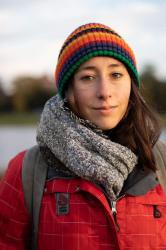Hear ye, hear ye, biologists! A headline from today reads: The minke whale has laid six eggs. An egg laying whale? Could global warming be the cause of this bizarre anomaly? I picture eggs the size of cars floating about the surface of the water, as mama minke struggles to keep them all together, like herding buoyant, uncooperative sheep. Something like this cannot be missed. I gear up with all the warmest and most water-repellent clothing I’ve got, and head down to the pier. I bribe the fishermen and they let me hitch a ride; the weather is foul and I can’t see anything on the horizon. Could be the fog, the rain, or it could be the unrelenting waves crashing onto the boat, making sure my face is familiar with the fish-gut covered floor, or the fact that I’m spewing my own guts out onto the murky waters, who knows. However, I’m determined to see the whale and its eggs. Fishermen walk their sealegs past me, unfazed and seemingly unaffected. After a gruelling 12 hours, the skies open up, giving me respite from the aforementioned struggles. A faint signal returns to my phone, and I decide to read the article further. Perhaps there’ll be more useful information on the whereabouts of the whale and its young. Of course. My excitement got the better of me once again. There’s a picture of a raven in its nest. ‘Hrefna’ is Icelandic for minke whale, but it can also be the feminine version of ‘Hrafn’, raven in English. The article is linked to a live feed of the nest, where the raven couple have laid six beautiful blue eggs. Of course, squirmy little raven hatchlings are no whale eggs, but they do manage to ease the disappointment.


Buy subscriptions, t-shirts and more from our shop right here!


















